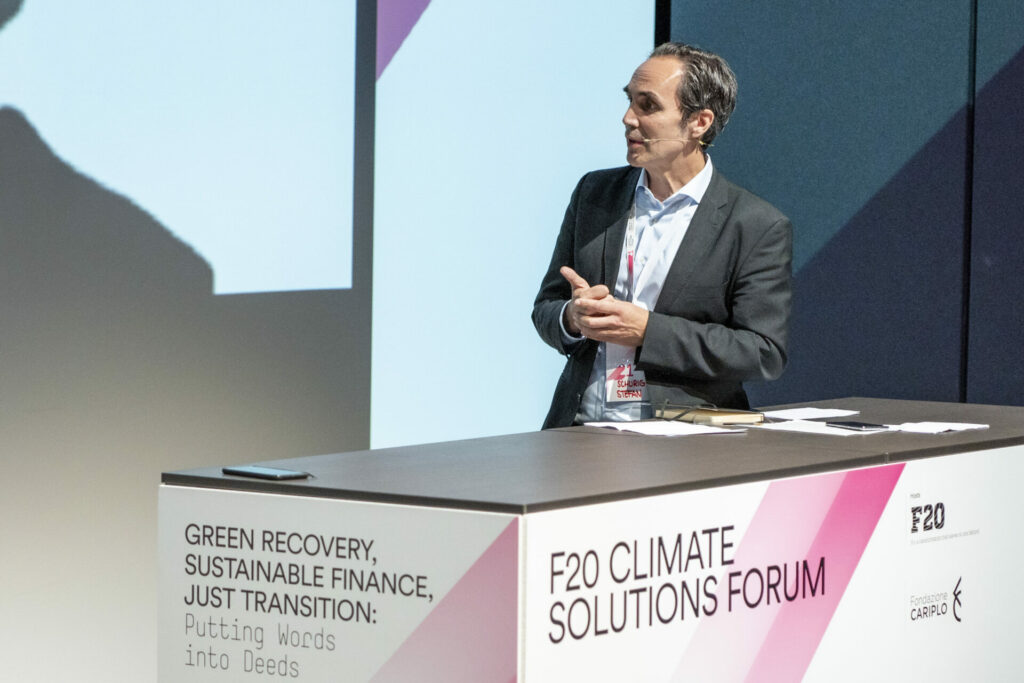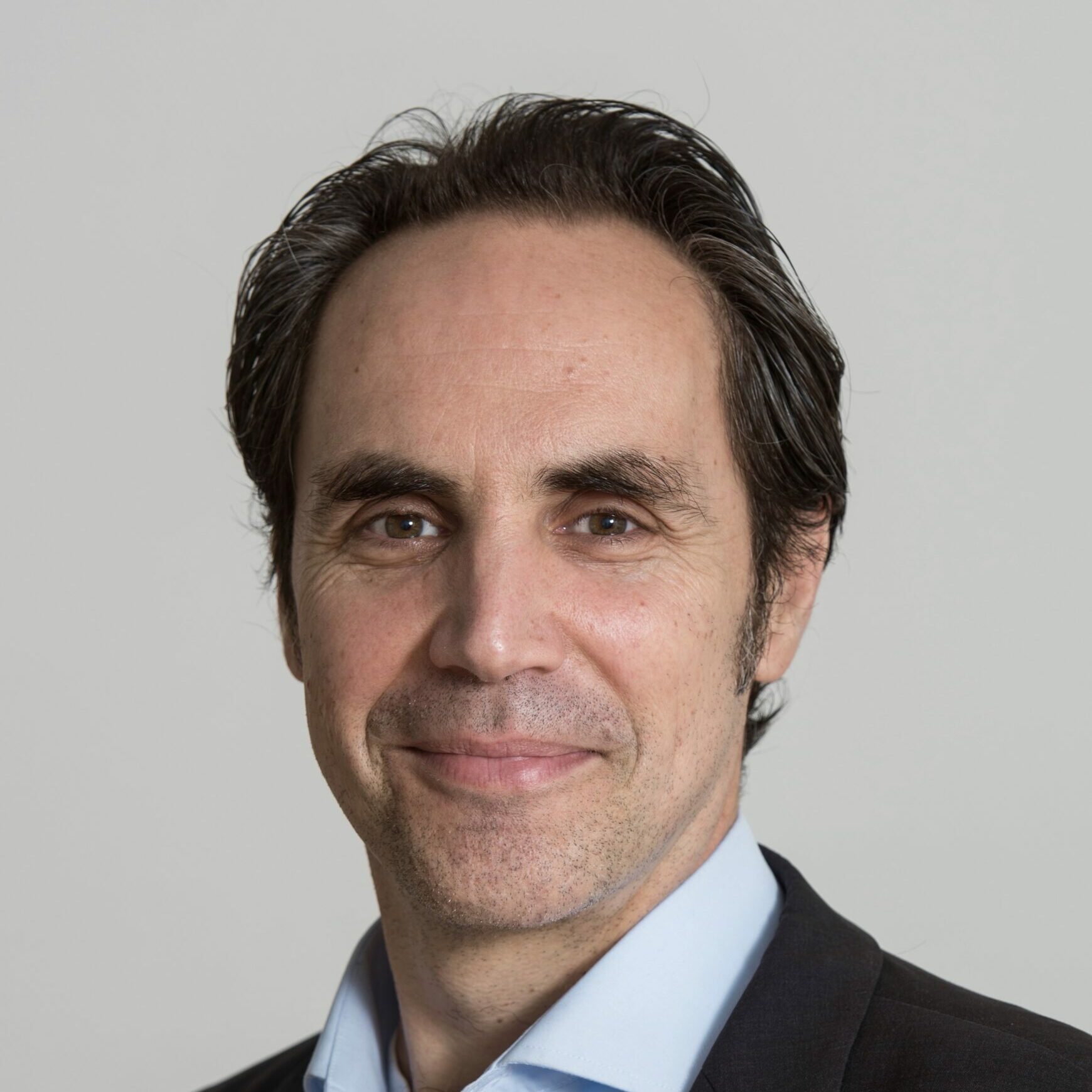Climate Crisis and the G20: Putting words into deeds
By Stefan Schurig, Secretary-General of Foundations Platform F20
Good: the G20 this year recognised the fact that exceeding 2°C global temperature increase can be much worse than staying below 1.5°C as affirmed in the “Global Warming of 1.5° C” IPCC Special Report”. Also good: the G20 countries, therefore, decided to accelerate action to keep this 1.5° C limit ‘within reach’ during the critical decade of the 2020s. But what now? This was the question raised at this year’s F20 Climate Solutions Forum as we really need to put ‘words into deeds’!
Below are some of my personal reflections on the event.
“We have to immediately end new investments into the burning of coal, oil and gas, accelerate the deployment of renewable energy, protect and restore world natural ecosystems instead – forests, mangroves, rivers, oceans, and wildlife. These are the building blocks to resilience and sustainability.“
Stefan Schurig, F20
The Forum started with a clear analysis: the Earth’s system is moving outside the range of stability due to human activity. We have to immediately end new investments into the burning of coal, oil and gas, accelerate the deployment of renewable energy, protect and restore world natural ecosystems instead – forests, mangroves, rivers, oceans, and wildlife. These are the building blocks to resilience and sustainability. And they will be the basis for future finance and for local, national as well as multilateral decision making such as by the G20. Those who are delaying climate protection are in many cases actually acting against the law and we need to challenge that by helping to enforce existing law. Foundations have a pivotal role to play in this transformation by taking a stand and by taking action themselves. These statements, made by Johan Rockström, Director of the Potsdam Institute for Climate Impact Research or by the environmental lawyer, Roda Verheyen were very powerful. The idea of calling upon the ‘G3’ among the ‘G20’- US, China, and the European Union – to take the lead on climate seemed an interesting approach given the most recent pledges coming from these countries suggest a move away from coal.
“Foundations have a pivotal role to play in this transformation by taking a stand and by taking action themselves.”
Stefan Schurig, F20

Other keynote speakers also exhibited a new sense of urgency that was somehow new to me. As stated by Ban Ki-moon, former UN Secretary-General and Deputy Chair of The Elders in his F20 contribution, “through global, coordinated, and concerted action the G20 must now not only deliver on their promises but lead boldly with new commitments in line with 1.5 degrees. Heads of State have an exceptional opportunity and obligation to do what is needed so the world can avert climate disaster and it is imperative that the G20 pull in the same direction on this critical effort.” I was extremely pleased about these clear words of Ban Ki-moon as they get to the heart of what F20 is advocating for: treating the global climate crisis as a crisis and urging the G20 countries to live up to their responsibility to align their actions with the Paris Climate Agreement and the Sustainable Development Goals of the United Nations.
“[…] It costs more to not respond to the climate crisis now than it costs to respond”
John Kerry, US Special Presidential Envoy for Climate
I’ve been also impressed by John Kerry’s contribution, U.S. Special Presidential Envoy for Climate, who reminded the F20 audience “[…] that it costs more to not respond to the climate crisis now than it costs to respond […]. We simply cannot reach net zero emissions globally and keep 1.5° C within reach without ending the destruction of our ecosystem and without beginning to restore our land and waters”. He also sees philanthropy and especially foundations to play a key role in further building momentum for sustainable investments in both the policy and finance tracks of the G20, the UN and the private and corporate investors track.
Our main event this year, therefore, called upon the G20 to put words into deeds, act on the global climate crisis and agree on concrete targets and tools on upscaling renewable energy, protecting biodiversity and decarbonising the global financial markets (find here our list of concrete F20 Recommendations).
Recognising the global challenges of climate change, many countries have announced to go net zero. Yet, these announcements are not enough if we want to stay below the 1.5 degrees benchmark: they still need to be backed up with concrete actions. Despite the complex interlinkages in the climate system, biodiversity, climate change, food and health are often dealt with in relative isolation, including how governments and other stakeholders organise themselves to act on these inextricably linked issues. Key principles are needed to help shape, for example, a vision of global food production that is resilient, regenerative, diverse, and healthy. Ruth Richardson, Executive Director of the Global Alliance for the Future of Food, emphasised that “we must do all we can to build processes and policy platforms on principles of transparency, inclusive participation and shared power. Especially for women, smallholder farmers, indigenous people, youth and marginalized people.”
The second block of the event illustrated what future-proofing pathways towards Sustainable Finance and Impact Investing solutions could look like. How do we literally ‘shift the trillions’, as the global UN formula for implementing the SDGs suggests?
As we didn’t want to stop addressing the multilateral level but also look to where the G20 decision ‘land’ an entire panel focused on cities and communities. Innovative concepts of cities, such as the ‘15-minutes city’ presented by Carlos Moreno at the forum or the concept of the ‘creative city’ by Charles Landry bear indeed some very important aspects of how cities function and how they can transform. Most cities and communities already experience drastic impacts of climate change on a daily level. As emphasised by Carola Carazzone, Secretary-General at Assifero and Dafne Board Chair, the “local dimension is today more than ever directly intertwined with the global one.” And with regards to the role of foundations, she stated that, “it is exactly at this intertwining in global and local mutually reinforcing or mutually destroying each other that opens a new horizon of power and impact for philanthropy networks. Collaborative and collective action among foundations and funders cannot be taken for granted, [but has] to be intentional.”
“It is exactly at this intertwining in global and local mutually reinforcing or mutually destroying each other that opens a new horizon of power and impact for philanthropy networks.“
Carola Carazzone, Assifero & Dafne
For me, this is precisely where F20 can add value next to its advocacy activities: convening foundations from the G20 countries and providing the fertile ground for mutual empowerment, knowledge transfer and taking a stand on a Just Transition towards sustainable development within the G20 countries, between them and beyond.
The F20 Climate Solutions Forum was hosted by Foundations Platform F20, and Fondazione Cariplo together with their Italian partners Fondazione Unipolis, Fondazione di Comunità di Messina, and Fondazione Compagnia di San Paolo, and in close collaboration with Assifero, ASviS and ACRI.
To re-watch and find out more about the event, click here.

Stefan Schurig is the Secretary-General of the Foundations Platform F20, a network of more than 60 Foundations from all parts of the world supporting the alignment of the G20 with the Paris Climate Agreement and the Sustainable Development Goals of the United Nations. He is an architect by training and has worked for more than 25 years in the 3rd sector on sustainability subjects with a focus on climate, energy and Regenerative Cities. Before he joined the F20 platform in 2017 he was a member of the Executive Board of the World Future Council Foundation (WFC) and Head of the Climate and Energy department for some 10 years. Stefan also served as an appointed member of the Steering Committee of the World Urban Campaign of the United Nations between 2010-2016. He authored and co-authored various publications on environmental protection, energy and urban development in recent years. In earlier years Stefan was a member of the Senior Management Team and spokesperson of Greenpeace in Germany for some ten years.
Photo credits: Francesco Prandoni
